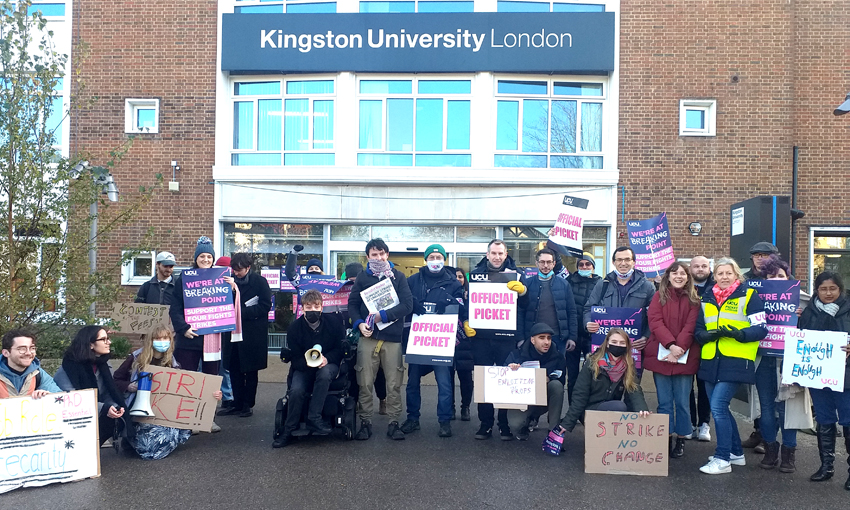AS PART of the nationwide three-day strike to combat pay and pension cuts to university staff, a team of over 40 activists from unions across Sheffield University rallied together on picket lines yesterday morning.
Sheffield University was one of 58 universities that began their three-day strike across the country.
In Sheffield, pickets demanded a livable minimum wage and pension rights, an honest workload, abolishment of the race/gender pay gap and the promise of job security.
University and College Union (UCU) member Sarah Boddy, a researcher at Sheffield, said: ‘There has been an obsession with increasing numbers. Of course universities are being treated like businesses.
‘One thing that strikes me after talking to students are the increase in numbers. How can having over 300 students in a lecture be good for welfare? There is a lack of direct contact.’
Sheffield student Jack Riley, in the National Union of Students (NUS), said: ‘Staff are underpaid and overworked. It has got worse and worse every time and I am disgusted by the decision to close the department.’
NUS member Allison Birch, a 2nd Year English language and literature student at Sheffield, said: ‘I am here because I think my lecturers deserve working rights.’
Martha Foulds, a student and casualised worker for the Archaeology department at Sheffield, told News Line: ‘There are two reasons for this protest. Firstly to improve people’s teaching and learning conditions.
‘Secondly it’s about defending the future of education. Managers want to put money into Mechanics whilst forgetting about other subjects that are not seen as profitable.’
Louise Griffiths, a first year journalism undergrad at Sheffield, said: ‘I think it’s really important to improve conditions to support teachers currently but also for conditions in the future.
‘It’s become more commercialised. Teachers have been neglected, not respected for the role they serve.’
In London, where eight universities were out on strike yesterday, pickets were rock solid and also joined by students.
At Imperial College in south Kensington there were over a dozen lecturers and staff picketing the main entrance near the Science Museum.
They were handing leaflets about the strike to passersby.
UCU member Joe Barritt, Life Sciences lecturer at Imperial College London, said: ‘I joined the picket today because I am on a temporary contract. This is about fighting for better working conditions for everyone.
‘Without taking direct action, management can erode our conditions even further.’
A mass picket of over 50 students and lecturers outside Kingston University in south west London received solid backing from passing motorists who hooted their horns in support.
At Kingston University, UCU Vice-Chair Rosie McNiece said: ‘We used to be 470 but now we have over 500 members with unprecedented recruitment in the past few weeks.
‘We are defending pensions against a 35% cut, There is also the Four Fights Campaign where we are fighting against excessive workloads, casualisation, inequality and pay deflation. They really impact here at Kingston.
‘Our message to our students is: “Our working conditions are your learning conditions. When our working conditions are substandard and illegal in some cases, causing mental health illness, your education suffers”.’
UCU member and Geography lecturer Lindsey Fox said: ‘We’ve lost several staff in recent years, who were not replaced and we are at breaking point, with all staff working 50-60 hours a week. It is making us stressed and ill. We must be heard.’
Kingston University UCU Branch Secretary Layla Renshaw said: ‘We had a phenomenal ballot turnout here of over 60%, with over 90% voting in favour of action.
‘There is a very strong feeling of injustice among public sector workers, especially over the past two years and I’m sure other sections are going to come out, especially NHS workers and school teachers.
‘They must be fully supported by the Labour Party and the rest of the trade union movement.’
